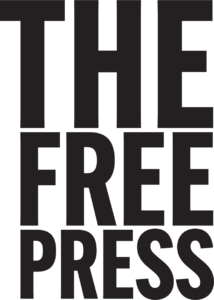U.S. Media Under Siege: Consolidation and Control Reshape Free Expression
September 22, 2025, 9:36 am
CBS
AdTechEntertainmentHumanInformationMediaProductionServiceStreamingTelevisionTV
Location: United States, New York
Circa News
Location: United States, District of Columbia, Washington
Trump’s administration exerts unprecedented control over U.S. media. It weaponizes the FCC and legal challenges. This pressure drives a stark rightward shift. Jimmy Kimmel’s abrupt suspension signals this new era. Major media entities consolidate rapidly. They secure favorable regulatory approvals. This centralizes information flow under aligned ownership. Diverse journalistic perspectives vanish. Free speech faces direct threats. Digital platforms also bend to conservative pressure. Billionaire allies acquire critical communication tools. This creates a monolithic information ecosystem. It fundamentally reshapes American discourse. Democracy’s foundations tremble under this concentrated power. The trend is undeniable.
The Kimmel Precedent
ABC suspended talk show host Jimmy Kimmel. This followed remarks about a conservative activist's killer. The FCC exerted immense pressure. Its chairman, Brendan Carr, threatened broadcast license revocations. He called critical content "garbage." This action jolted the U.S. media landscape. It intensified fears over free speech. Disney, ABC's parent company, acted. It bowed to political and regulatory threats. This was not an isolated incident. Disney previously settled a lawsuit with Trump. This involved a multi-million dollar payment. It stemmed from unfavorable on-air comments. The White House dismissed the issue. It called Kimmel’s show "unpopular." It deemed it a "talent problem," not a free speech concern.
Trump's Expanding Grip
The Trump administration actively shapes media narratives. It uses political leverage. It mutes criticism. It punishes perceived bias. Media and tech platforms feel the force. Many now align with Trump supporters. Billionaire leaders back the president. They contribute to his causes. They gain influence. Companies adjust their coverage. CBS and Meta Platforms made operational changes. The Washington Post and Los Angeles Times altered editorial stances. They prepare for less adversarial reporting. A clear rightward lurch defines major U.S. media. No strong countervailing force appears. This shift consolidates power.
FCC's Hammer
The Federal Communications Commission holds vast power. It oversees broadcast licenses. It approves media mergers. This regulatory authority becomes a potent weapon. Larry Ellison's son, David Ellison, sought FCC approval. His company, Skydance Media, acquired Paramount. This deal included the CBS network. A promise to reflect "varied ideological perspectives" was made. This commitment secures deals. It dictates content direction. The FCC's influence extends deeply. It shapes ownership. It controls content. Its threats carry significant weight.
Consolidation Accelerates
Media consolidation intensifies. It happens at an unprecedented pace. Big networks lobby the Trump FCC. They seek to eliminate remaining ownership limits. They argue for increased competitiveness. This claim often lacks merit. Consolidation harms journalistic diversity. It stifles competition. It fosters a monolithic culture. This centralized power structure is easily exploited. Authoritarian figures benefit. Nexstar Media Group exemplifies this trend. It is the largest owner of broadcast stations. Nexstar preempted Kimmel's show. Sinclair, another large owner, followed suit. Nexstar now seeks FCC approval for a $6.2 billion acquisition of Tegna. This creates a giant local news entity. It will exceed existing ownership caps. This expands right-wing influence across local markets.
Digital Platforms Fall in Line
Conservative pressure reshapes digital platforms too. Elon Musk acquired Twitter. He renamed it X. He promised "free speech." He dismantled its Trust and Safety team. Conservative accounts were restored. Content on X shifted rightward. Meta Platforms followed suit. It disbanded its U.S. third-party fact-checking program. This impacted Facebook, Instagram, and Threads. A Trump ally joined Meta's board. A Republican policy executive gained global affairs leadership. Mark Zuckerberg cited "too many mistakes and too much censorship." He signaled a return to "free expression." This aligns with conservative demands.
The "Lawfare" Strategy
Trump employs legal action as a weapon. He targets major media outlets. These lawsuits challenge unflattering coverage. He filed numerous civil suits since 2020. They include massive defamation claims. The New York Times and Wall Street Journal faced such actions. Judges sometimes dismiss these suits. Yet, their purpose is clear. They stifle independent reporting. They discourage criticism. This "lawfare" creates a chilling effect. It pressures news organizations. It forces self-censorship.
A Looming Information Monopoly
Future mergers loom large. Paramount seeks to acquire Warner Bros Discovery. This includes CNN. Oracle, a cloud giant, targets TikTok. TikTok reaches 170 million Americans. Its acquisition by a conservative billionaire holds immense implications. These deals concentrate media power. They place key communication tools under specific ideological control. This threatens diverse information access. It transforms public discourse. Media academics warned about this for decades. Their warnings went unheeded. The consequences are now manifest.
Eroding Free Expression
The current environment actively suppresses free speech. Government power targets critics. The administration uses arguments previously criticized. These actions parallel those conservatives once opposed. This hypocrisy is stark. It undermines foundational principles. Journalism's independence erodes. The media becomes an extension of political power. Propaganda risks increase. Public backlash against unpopular policies becomes harder to organize. The struggle for an informed public intensifies. The future of American media looks increasingly homogenous. It risks becoming a tool for consolidated authority. This challenges the very notion of a free press.


